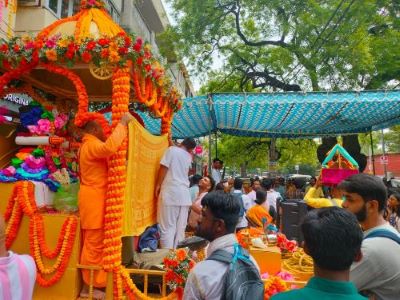Delhi HC has rejected DU’s preference for CLAT instead of CUET for its 5-year law courses. The respondents of the PIL are DU’s Faculty of Law, Vice Chancellor of the University, UGC and Union of India through the Ministry of Education.
On Thursday, August 17, the Delhi High Court questioned Delhi University on its decision to admit students to its new 5-year integrated law courses based on the Common Legal Admission Test (CLAT-UG) 2023 results. A petition submitted by Prince Singh, a student at DU’s Faculty of Law, challenged the University’s announcement of the 5-year integrated law courses, beginning in the academic year 2023-24. The Public Interest Litigation (PIL) filed by him sought admission to these courses through CUET UG 2023, following the directives of the Universities Grant Commission (UGC) for central universities. The Court granted Delhi University and the Centre time until the next hearing on August 25 to file their responses to the petition.
The bench, which included Chief Justice Satish Chandra Sharma and Justice Sanjeev Narula, stated that the Government of India, through the National Education Policy, had decided that admissions to all Central Universities would be done through the Common University Entrance Test (CUET) introduced by the Ministry of Education (MoE) and that Delhi University is “not special.”
You are not special. There is a national policy. If 18 other central universities are relying on the CUET scores for admissions, why is DU not doing the same?” the bench remarked.
The court granted the University’s counsel time to file a counter-affidavit before the next hearing on August 25. The Union of India has also been given time to “file its reply” or seek “appropriate instructions in the matter.” However, the court stressed that if no counter-affidavit is submitted by the next hearing date, the matter will be heard on the question of grant of interim relief.
Delhi University’s counsel, Advocate Mohinder S Rupal, contended that the Vice-Chancellor, Prof. Yogesh Singh, formed a special committee of specialists, which delivered a detailed report to the Academic and Executive Councils of the University. During the hearing, he argued that the University only launched the 5-year integrated law degree this year and that if a stay is granted on the operation of the August 4 notification, the entire academic year will be wasted. He alleged that DU had not yet provided a schedule or timeline for admissions to its law courses.
It is not as if we are rushing the process. We haven’t started the admission process yet. The University will not issue any advertisement regarding applications for CLAT-based admissions to the 5-year law course till the next date of hearing.”- stated DU’s counsel, Mohinder Rupal.
The PIL was filed in response to a notification issued by Delhi University on August 4 announcing the introduction of the Five-year Integrated Law Courses- B.A.LLB (Hons.) and BBA.LLB (Hons.), admissions to which would be undertaken by the CLAT scores of the aspirants.
“The Bar Council of India in its letter dated 26.07.2023 has accorded its approval of 60 seats for BA LLB (Hons) and 60 seats for BBA LLB (Hons). Admission to BA LLB (Hons) and BBA LLB (Hons) shall be based on merit in the Common Law Admission Test (CLAT) UG 2023 result. The classes for BA LLB (Hons) and BBA LLB (Hons) courses will be held at the Faculty of Law, Kanad Bhawan, North Campus, University of Delhi. The online application for admission to BA LLB (Hons) and BBA LLB (Hons) courses will be announced by the University soon,” stated the notification by Delhi University.
The petition contended that by issuing this notification, Delhi University has placed a “wholly unreasonable condition” that violates the Right to Equality under Article 14 and the Right to Education under Article 21 of the Indian Constitution. The plea stressed that CUET is conducted in multiple languages while CLAT is held only in English, which leads to an admission advantage for a specific sub-group at DU’s Faculty of Law.
That the condition imposed for admission to the five-year integrated law courses at the Faculty of Law, University of Delhi, is wholly unreasonable and arbitrary. It lacks any intelligible differentia and has no rational nexus with the object of admission to the five-year integrated law courses at the Faculty of Law, University of Delhi,” the plea by Singh stated.
Featured Image Credits: Bar and Bench
Manvi Goel







